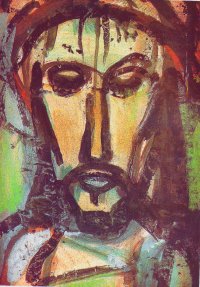
More About In Transit from Directors and Producers Bent Jorgen Perlmutt, Nelson Walker III and Louis Abelman (From MediaThatMattersFest.com) :
The Goma Film Project came about when Doctors on Call for Service (DOCS—now called HEAL Africa), a teaching hospital and nonprofit organization located in Goma, Democratic Republic of Congo (DRC), enlisted filmmakers Louis Abelman, Bent-Jorgen Perlmutt, and Nelson Walker III to produce assorted informational videos. The first of our assignments was to create a small series of surgical training videos documenting vesico-vaginal fistula (VVF) repair, the most common procedure performed at DOCS on any given day.
A vesico-vaginal fistula is a tear in the vaginal wall that opens into the urethra. In the first world, fistulas are rare; in most parts of the third world, they are caused by complications during childbirth. In the eastern Congo, they are primarily caused by an epidemic of violent rape and torture taking place in the war-ravaged countryside. Marauding armies and militias, some responsible for the Rwandan genocide of 1994, continue to stalk the forests and villages of the region. Women and girls of multiple tribal and ethnic backgrounds have increasingly become victims of plunder, rape, and slavery by the many armed groups involved in the ongoing conflict. At least 40,000 rape cases have been documented in the past several years, with some estimates of up to a million additional undocumented cases. DOCS/HEAL Africa is the only hospital in the region that offers a comprehensive rehabilitation program for women who have acquired fistula from rape.
Overwhelmed by the magnitude of the (for us, previously unheard of) situation, we decided to make a feature film about these women and their rehabilitation program, In Transit. After two months of filming in the Congo in late 2004, we spent much of the following year editing. We decided to return to Congo again in fall of 2005, and enlisted Lynn True, an editor who had worked previously with Nelson, to come along. It was a true experiment in on-site editing made possible by advances in technology. After another amazing few months in the Congo, we returned and have since continued editing. We expect to finish a full-length (80 min.) version of the film in April 2006.
Conflict continues in eastern Congo, and we hope to use our completed film to raise awareness of this massive, yet unheralded, humanitarian catastrophe. With the guidance of counselors (many of whom were former VVF patients themselves), the women we filmed go through an intensive rehabilitation program through which they receive physical therapy, counseling and training in micro-finance projects that aim to help them become self-sufficient after their treatment. As a result, many of these women leave the program not only physically healed, but with a new sense of dignity and awareness that they will be able to resume their lives. Unfortunately, the homes they have to return to are all too often sites of continuing armed conflict and danger — putting their recoveries at risk.
